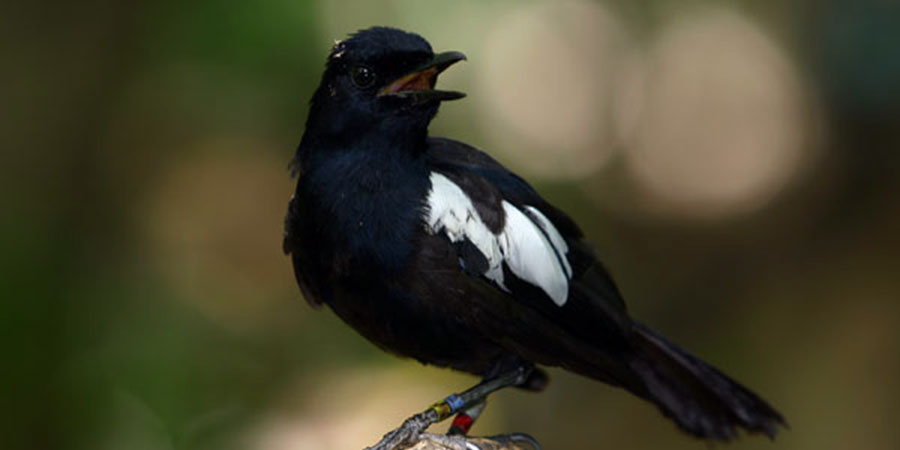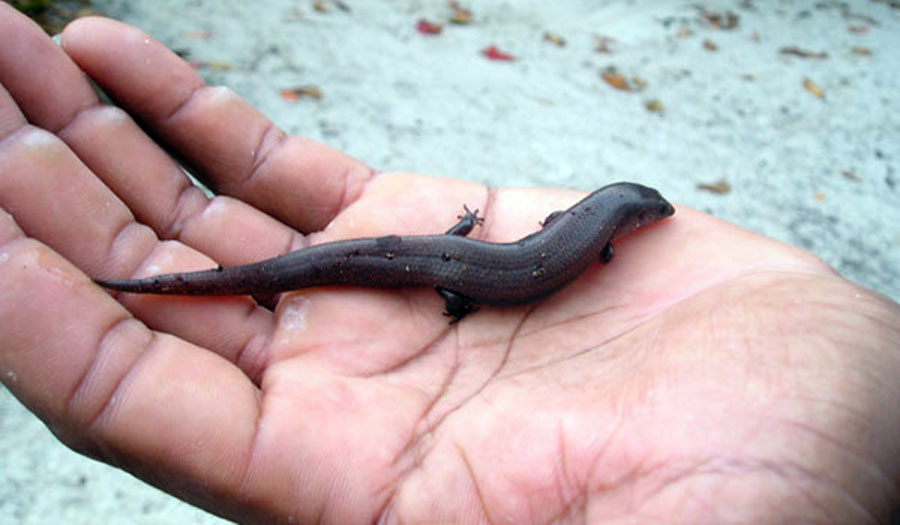
Since my arrival a week ago, we have been trying to capture a new Seychelles Magpie Robin (SMR) fledgling for ringing and to collect blood samples for molecular sexing. However, catching a single bird which is largely sitting around waiting for its parents to feed it, can be challenging.
Locating the fledgling in the forest is easier, because SMRs are quite habituated. They have learned that when a warden whistles, he is calling them over for a free snack. SMRs like to benefit from larger creatures that stir up insects from vegetation and leaf litter. The Cousin wardens are explicit in these efforts, associating the whistling signal with overturning rocks and logs, and sweeping leaf litter away from damp earth.
SMRs are also territorial and you almost always know which part of the forest you will find particular individuals.
Saturday morning, Assistant Chief Warden Alex and I prepared for our mission by collecting young cockroaches in an old coffee tin. Key to locating the fledglings is feeding the parents until they’ve had their fill and are ready to bring food to their chicks. Luckily, we found the fledgling quickly and within the range of the awaiting mist nets.

Alex found a burrowing skink, considered a delicacy by the robins, and tossed it on to the clear forest floor patch. One of the parents grabbed the skink and shook it until a piece of its tail came off. The parent flew with this delicious morsel to the chick, and placed it in its gaping mouth. The parent returned a second and third time breaking off the last piece of tail to feed the fledgling.
And then the fledgling moved.
In a split second, we had it hanging in the leftmost mist net. We untangled it quickly and brought it straight back to the research house. It was weighed and measured, its brachial wing vein pumped and blood removed with a needle and capillary tube. The bird was ringed with its metal ID band and one plastic red band.
With all this done, the fledgling was ready for return to his parents. We re-entered the forest whistling and upon sighting the parents loosed the fledgling. We left after the parents had noticed the return of their chick. Soon enough, the fledgling was screaming to be fed again, and the parents returned to the care of their demanding charge.

